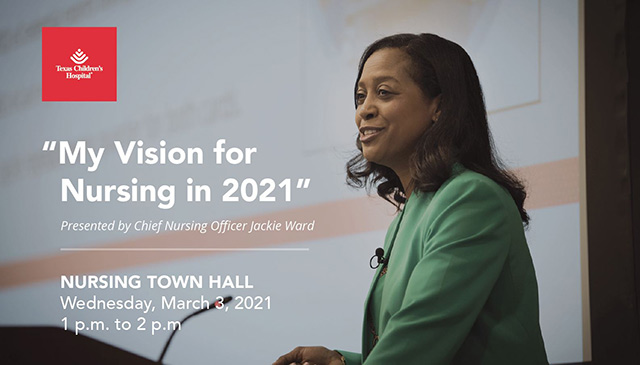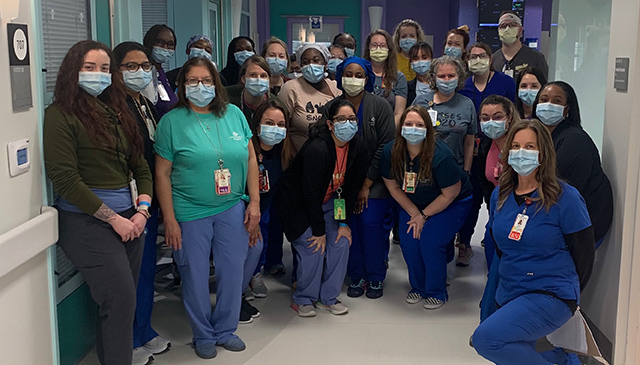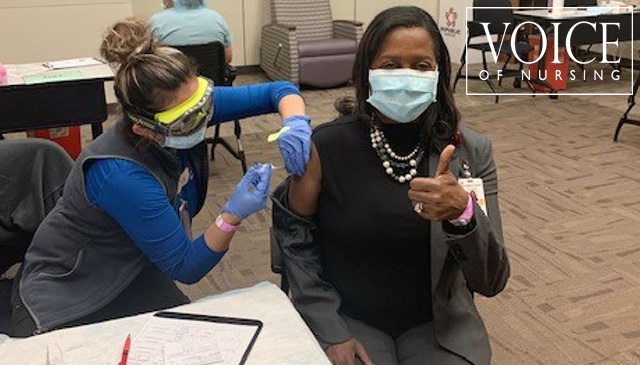
‘This profession is a calling:’ Texas Children’s recognizes Social Work Month 2021
Throughout the pandemic, social workers at Texas Children’s and around the country have been on the frontlines of care connecting vulnerable people with much-needed resources – prompting the adoption of a special theme for Social Work Month 2021 that also speaks to their far-reaching impact: “Social Workers are Essential.”
Led by the National Association of Social Workers and celebrated each March, Social Work Month is an opportunity to highlight the invaluable contributions that social workers make every day by meeting people where they are and helping them live to their fullest potential.
Yet despite being a centuries-old profession that is also one of the fastest-growing in the country with more than 700,000 active practitioners, it can be hard for many of us to explain the role that social workers play in the continuum of care. What does social work even mean, and what do social workers even do?
Check out the photo gallery below for a few thoughts on social work from patients and providers, and read on for helpful answers to your most common questions from Texas Children’s own medical social workers Amanda Harris, Claressa Munfus and Diane Murrell.
Who are our social workers here at Texas Children’s?
Our Texas Children’s social workers hold master’s degrees in Social Work and are licensed to practice in Texas as professionals. Team members in the department come from a variety of backgrounds, including homeless services, mental health, child protection, substance abuse treatment, school social work and more.
Many of our social workers are also skilled therapists who have served adolescent and perinatal patients within the Texas Children’s system, or worked in counseling fields prior to health care social work. Several are involved in research initiatives, present at professional conferences, contribute to organizational programs and medical advisory councils, and publish their work.
What do our social workers do?
At Texas Children’s, the social work role is directed toward removing obstacles to care with the aim of improving family functioning and health outcomes. We ensure the provider’s plan for healthcare is doable for the family – financially, with their schedule, with the needs of the other family members, considering work commitments and more.
Social workers are skilled in navigating hospital, state and federal resources in order to address family needs in a compassionate, inclusive manner. We are adept at fixing complex problems across multiple systems, often with little time and insufficient resources.
Social workers also provide therapeutic support to the patient and family as they adjust to learning about a new diagnosis or a new stage in the disease that may seem overwhelming. We assess for the continuing impact of the disease on the person or family psychologically, financially, relationally. This includes assessing for suicidal ideation, medical neglect and when mental health referrals are needed.
Social workers provide therapeutic support as they identify family strengths and empower the patient and caregiver. The social worker helps families process their feelings and anxieties in a safe space.
What types of issues do our social workers help our patients and families address?
Common causes for social work intervention include adjustment to a new diagnosis, unmet needs related to housing, transportation, finances, insurance, mental health, school advocacy, emotional support and end-of-life care.
Practical help is just as important as psychological support. For our patients who use medical equipment, we make sure that parents are aware of their children’s rights in school and empower parents to advocate for their child. We work with the school to ensure appropriate accommodations and modifications are implemented, assess for bullying and review the student’s need for social and emotional inclusion.
Do social workers help smooth the transition from pediatric care to adult care?
Absolutely. Many parents and young adults are concerned about the transition to adult care, and express anxiety about leaving the familiarity of Texas Children’s. As social workers, we provide education to prepare the young adult to have autonomy in their health care and transfer confidently.
Where do community connections come in?
Texas Children’s social workers are embedded in their service lines and simultaneously connected to multiple agencies and community resources. We extend the care that Texas Children’s provides to patients, reaching beyond the brick-and-mortar walls of the facility to support the patient in their daily life and community.
Responding to crises can take a toll, so what keeps our social workers going?
This profession is a calling, and our social workers are proud to serve our Texas Children’s patients and their families every day.









